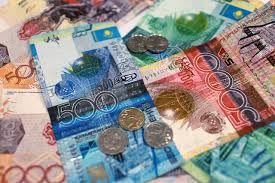 It is after 8pm and Kazakhstan's parliament in the futuristic capital of Astana is practically deserted. Yet Bakytzhan Sagintayev, first deputy prime minister, is still hard at work. A few minutes into an interview with the Financial Times, he is interrupted by a klaxon-like sound: an urgent query from the prime minister.
It is after 8pm and Kazakhstan's parliament in the futuristic capital of Astana is practically deserted. Yet Bakytzhan Sagintayev, first deputy prime minister, is still hard at work. A few minutes into an interview with the Financial Times, he is interrupted by a klaxon-like sound: an urgent query from the prime minister.
The Kazakh government is working into the night to try to stave off an economic chill blowing across the steppe. As Russia lurches towards recession amid the threat of ever-tougher western sanctions following the crisis in Ukraine, the impact is being felt from boardrooms to bazaars across former Soviet central Asia.
For a region where economic growth is a key tool for leaders to preserve political stability, the slowdown has triggered a ripple of alarm.
Despite its oil wealth, Kazakhstan has not been insulated from events in Ukraine: gross domestic product growth slowed to 2.9 per cent in the first quarter of the year, compared with a rate of 6 per cent last year and the government's target of 6 per cent for this year.
Mr Sagintayev draws a parallel with the financial crisis of 2008-09 – the only time in the past decade when the country has experienced growth of less than 5 per cent. "Today we see a situation where there are many political conflicts that can affect the economy," he says.
Indeed, the firefighting measures have begun. President Nursultan Nazarbayev abruptly replaced the government last month, installing an experienced ally, Karim Massimov, as prime minister.
The government has wasted no time: this week, it is set to unveil a $2.75bn investment programme to be managed by the European Bank for Reconstruction and Development, the Asian Development Bank and World Bank as part of a 1tn tenge ($5.5bn) stimulus package for the economy. It is also working on measures designed to smooth foreign investment.
"It's quite clear that [the Ukraine crisis] is a threat to regional prosperity [and so] the Kazakh government is trying to take proactive measures to try to avoid a significant downturn in GDP," says Janet Heckman, director for Kazakhstan at the EBRD.
The EBRD recently cut its forecast for Kazakh growth to 5 per cent this year, while the IMF warned growth could drop to 4.75 per cent. "They are worried," says Jean-Christophe Lermusiaux, head of research at Visor Capital, a Kazakhstan-focused broker. "It is still growing but you need more in Kazakhstan to keep people happy."
The government's concerns go beyond Russia, Mr Sagintayev says. Kazakhstan's other large neighbour, China, is also slowing. And the prospect of tighter US monetary policy poses an additional risk.
"If the economy worsens – not just the Russian economy but also the world economy – we have worked out a plan B, we know what we are going to do," he says.
Kazakhstan's economy was already slowing before the crisis in Ukraine reached fever pitch. Oil production, its main driver, has stalled – and is set to fall this year as the giant Kashagan project is delayed.
And when Russian growth slowed early this year and the rouble tumbled, Kazakhstan's central bank responded in February with a shock 19 per cent devaluation of the currency.
Officials say the devaluation was necessary to maintain competitiveness with Russia, which accounts for 37 per cent of Kazakh imports and 7 per cent of exports. But executives say it has knocked confidence.
"Devaluation is beneficial to the economy as a whole but it hurts the man on the street in the short term," says Mark Smith, managing partner for Deloitte in the Caspian region.
The steep fall in the value of the tenge has led to sharply higher retail prices for staple goods like bread, up 62 per cent, and onions, 73 per cent higher, according to research from Visor Capital.
Gulnara, a mutton seller in Almaty's central bazaar who refused to give her full name, says times are tough: "People don't have money. Before the devaluation it was better."
The move in the exchange rate has also hurt the banking sector, still struggling with the legacy of problem loans left over from the 2008-09 crisis.
Mr Sagintayev says 250bn tenge ($1.4bn) of the stimulus programme will be directed to the financial sector. Other priorities include developing the private sector and fostering energy efficiency, according to a draft of the investment agreement seen by the FT. "We are already pouring money into the economy this year," he says.
But with every round of western sanctions against Russia, the task for Kazakhstan – and the rest of central Asia – becomes more Herculean. "We see fewer institutional investors looking at this part of the world," says a top investment banker in Almaty. "Investors and companies when they think about long-term plans for capex will be scared."
The Financial Times




